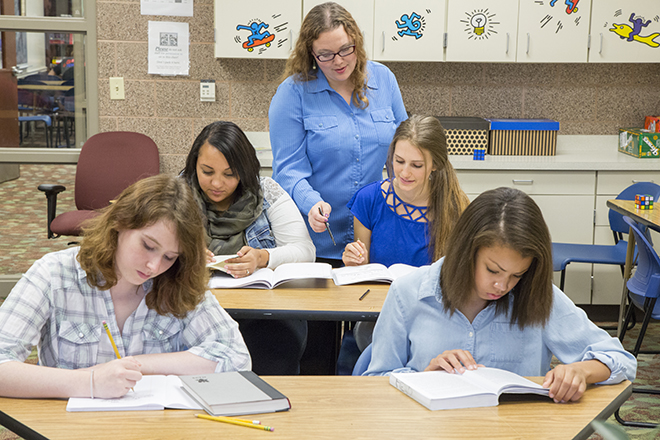New school year may bring with it concerns, anxiety, uncertainty; Rosecrance makes student mental health a priority

COURTESY PHOTO Belvidere Republican
The start of a new school year can be stressful for children of all ages, so Rosecrance Behavioral Health is there to offer tips for parents and caregivers that can help children deal with their concerns.
Waning summer daylight; pencils, notebooks and folders replacing beach balls and suntan lotion on store shelves; and earlier bedtimes are a few of the changes that signal the start of a new school year—bringing with it a potential mix of excitement, anticipation, fears and anxieties over what the new school year will entail.
Rosecrance Behavioral Health has a number of ways parents, other adult caregivers and even older siblings can help alleviate some of those concerns—and is offering tips to consider when helping children face that new experience in a new classroom or school.
Starting a new routine to get in the groove of the new school year is one way to help both parents and children begin adjusting to changing bedtimes and waking up earlier.
Melissa Lee, Rosecrance Behavioral Health Youth Community supervisor, said that “starting the routine earlier rather than later, even over the summer,” will help make the change in routine easier, especially with the transition from elementary school to middle school, and from middle school to high school.
“That way it’s not so scary on the first day,” she added.
Another way to introduce kids to the new school year is to take a tour of the school; especially for students who will be attending a new building, and also having them help pick out their school supplies.
Lee emphasized that one of the most important things parents and caregivers can do is have conversations with their kids; letting them “share their worries and concerns.”
That way, the conversation is “involving them in the process,” Lee said, pointing out how “anyone that’s a support to the child can be involved in the process.”
Obviously, concerns will be different for younger students than for older ones, but the supervisor said that when listening to their children, it’s important for adults to “normalize the feelings that they’re feeling.”
For instance, “Opening the locker is a big fear for kids” who are transitioning to middle school or high school, Lee pointed out.
“The transitions are big ones, and new peer relationships, no matter what grade they are going into,” the supervisor added, sharing that from her observations, “Social relationships is a big topic that kids bring up.”
“It’s important for kids to know they have supports in place,” she continued, adding that in the Rockford schools, for example, there are mental health clinicians in the schools.
The Rosecrance mental health clinicians are “connecting with school staff, and are there to meet kids where they’re at,” she added.
Lee suggested that there are ways parents and caregivers can be alerted to problems in school, or mental health concerns, by observing their child’s behavior.
Some of the things she said to look for are not being as active as usual and appearing to feel isolated.
A Rosecrance release also states: “It’s important to be attentive to any persistent uneasiness. Sudden behavioral changes, such as withdrawal, increased hostility, disengagement from activities and a shift toward negative peer groups, may indicate underlying issues that require attention.”
Lee said students and parents who have concerns are encouraged to seek help.
“By providing young people with the necessary mental health support and resources, we are ensuring that they have the tools to navigate their challenges, thereby setting them up for a healthier and brighter future,” commented Dr. Raymond Garcia, Rosecrance’s chief medical officer, in the release.
“The goal is to reduce the barrier to mental health support,” Lee summed up. “I encourage families to reach out for help.”
Rosecrance, a nonprofit organization that offers behavioral health services for mental health, substance abuse/addiction and life events, has locations in Wisconsin, Iowa and Illinois, including at 915 Alexandra Drive in Belvidere.
More information is available at rosecrance.org or at 888-928-5278.


